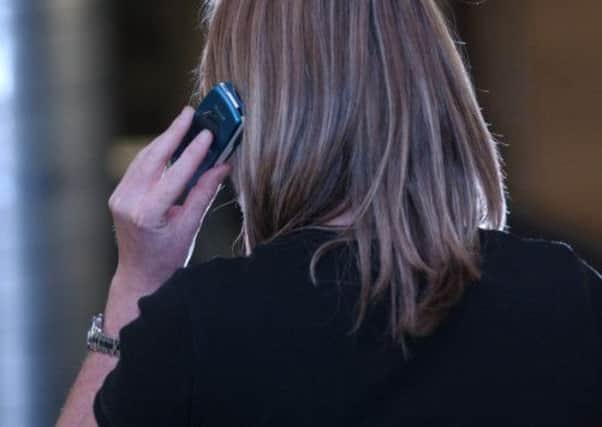Scottish independence: ‘Phone bills could soar’


So-called roaming charges – a premium paid for continuing connection to home networks in foreign countries – are likely to be applied if Scottish residents travel south of the Border in the same way as when UK residents visit other European countries as present.
Independence campaigners have, however, accused UK ministers of scaremongering – and highlighted the fact that the European Union intends to effectively phase out charges in two years’ time.
Advertisement
Hide AdAdvertisement
Hide Ad“International roaming charges have been cut drastically in recent years and are expected to be scrapped by 2015,” a spokesman for Yes Scotland said last night. “This simply seems to be more scaremongering.”
The claims will be made in the UK government’s latest paper on the consequences of a referendum Yes vote next year to be launched on Tuesday by Business Secretary Vince Cable. It is also is likely to focus on infrastructure and transport as areas where independence will have consequences.
Posting a letter to other parts of the UK could also become pricier because of the potential break-up of the current UK-wide postal service, it will say.
Tens of millions of pounds in subsidies to provide broadband to remote parts of Scotland will no longer be available, it will also claim, while warning that network providers may also see sparsely-populated Scotland as a less attractive place in which to do business.
UK consumer minister and East Dunbartonshire MP Jo Swinson said: “If Scotland left the UK, posting a letter or making a call could cost more – and there could be less choice for customers.”
There was a prospect of a broken-up postal service applying delays and charges to letters sent to elsewhere in the UK. On Royal Mail privatisation, she said that an independent Scotland would have to find the money to invest in it from public resources if it wanted to keep it in public hands.
“In order for Royal Mail to compete and deliver a good service and not be undermined by other companies, then they need to invest in new state-of-the-art equipment. If that is paid for by the taxpayer, then that money is competing with money for hospital scanners and school buildings.”
Although the EU has pledged to axe roaming charges, Swinson claimed the move could not be “guaranteed” for Scots as there were questions over Scotland’s membership following independence. And on future network auctions, she said companies may not be so willing to pay huge sums to service a Scottish-only region, given the fact that rural areas cost more to provide for.
Advertisement
Hide AdAdvertisement
Hide AdThe warnings last night received a blunt reply from the Scottish Government, which argued that independence is the only way to prevent postal services being privatised, as is being planned by the UK government. On broadband provision, Scotland could follow the example of Sweden in designing a better regulatory scheme so that operators were ordered to provide a service to all of the country’s remoter areas in return for gaining coverage.
The Mobile Operators Association in the UK said that it had not seen the government paper, but added: “Whatever the result in the referendum, the industry would hope for a degree of continuity based on EU rules that will give confidence and help investment.”